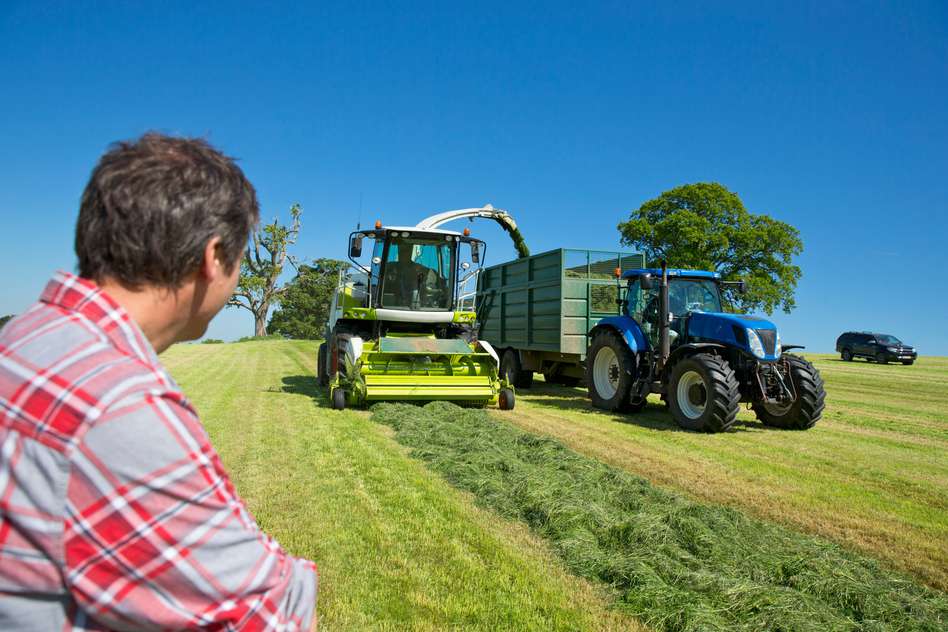Families and divorce
Farming divorce: protecting your family farm

A farm is usually a family business, but it’s more than simply an income. It’s an all-consuming occupation and a way of life. Divorce has become part of everyday life, and farming families are as susceptible as any other to a marriage failing. However, farming divorces are more complex, so it’s vital that you seek expert legal advice.
Clare Pilsworth, Partner in the Family Law team at Tees, outlines the challenges faced in a farming family divorce and identifies steps that can be taken to ensure that the farming business is protected from the outset.
If the worst were to happen and your marriage hits troubled times, we will provide you with the expert legal guidance and support you need.
- What factors are considered in a farming divorce?
- What about family members living on the farm?
- Do I need to go to court?
- How can I protect my farm?
- What about a prenuptial agreement?
What factors are considered in a farming divorce?
The primary aim in a divorce separation is to establish what the needs of each party are and how these needs may be met.
The courts have very wide discretion to reallocate assets within a marriage to ensure that both parties’ needs are met for the future. This could mean being forced to sell off land or property in order to raise cash, which will raise some important issues for your farming business.
The first step is to define the assets and decide how to share assets built up during the marriage. The Courts will then seek to ensure each party receives a ‘fair share’. A fair share, however, does not necessarily mean equal, and farming cases merit special consideration, including:
- Inherited assets which are not subject to the sharing principle in the same way
- A farm owned by the wider family, for example, with siblings, parents or both, will require careful thought as Courts are reluctant to damage the livelihoods of other third parties.
- Provided there are sufficient liquid assets, the Courts can disregard equality in favour of protecting any inherited element
Whilst for non-farming divorces, an equal division of assets and wealth accumulated during marriage could be considered a fair divorce outcome, this may not always be achievable for farming families because of the need to preserve assets that were owned long before the marriage.
‘Fairness’, however, still requires financial needs to be met.
Call our specialist solicitors on 0808 231 1320
What about family members living on the farm?
You may have passed certain farming properties to your adult children or have allowed them to live in them to ensure that the needs of the farm can be met.
Where an adult child has received financial support or housing from a parent during the marriage which is then subject to divorce the Court can make an order against the child effectively forcing them to prevail upon parents or the extended family, to provide support in relation to financial settlement.
It is therefore important to be aware of the potential implication of deciding to financially assist children during their marriages. This is particularly relevant where a family’s wealth has been built through the farming generations, and the family want to prevent the farming business being broken up during divorce proceedings.
Do I need to go to court?
Contesting financial matters in Court within a divorce can be very costly and is not the only option open to you. The Courts are, therefore, placing more and more emphasis on non-court dispute resolution as a means of solving disputes because of the significant delays and expenses that come with court proceedings.
Non-court dispute resolution options, such as mediation, collaboration, and arbitration, are alternatives to court proceedings that seek to resolve matters as efficiently, cost-effectively, and amicably as possible.
How can I protect my farm?
Careful planning in advance is extremely important. By doing so, you can structure your arrangements taking full account of the specifics of your farming business and individual family circumstances.
There are several ways you can seek to protect your farming business along with future income streams:
-
Partnership Agreements
Partnerships are the most common business structure within the farming industry – they are relatively simple and a flexible way to run a farming business. By drawing up a partnership agreement, you will be able to ensure that it is made clear in writing exactly which assets belong to the partnership and which are owned by each partner as individuals.
-
Family Trusts
One way to protect the family farm is through a family or discretionary trust. This trust not only protects family assets but can also divide farm income to minimise tax.
A trust “owns” your family assets, such as the farm, investments, home, shares, or business, while you, your family members, or others might be beneficiaries under the trust.
Trusts can play a key role in protecting family wealth on divorce and can provide a means to assist adult children without risking farm assets. However, trusts should always be considered as part of a long-term strategy to protect family wealth, as a trust set up when a marriage is on the verge of breakdown is unlikely to withstand the scrutiny of the courts.
What about a prenuptial agreement?
Prenuptial agreements are an effective way of legally protecting your farming business, together with property and money acquired before a marriage. Entering into such an agreement before marriage allows you and your future spouse to plan how you will divide current and future assets should you divorce in the future.
However, there is something to be said for ensuring that the spouse marrying into the farming family does not feel excluded through entering a prenuptial agreement and, through the marriage, feels invested in the future success of the farm and business.
If a prenuptial agreement might be considered, it should be done so in light of the joint commitment of the marriage. It is that commitment which will make the farm succeed as well.
It is important to take expert legal advice from a family lawyer who specialises in dealing with farming assets on divorce to ensure that the terms of the prenuptial agreement are sufficiently robust to be upheld by a court.
Certain criteria must be fulfilled for the agreement to be upheld and it is important for both parties to receive independent legal advice.
Expert legal advice for over a century
Tees’ heritage and culture has been rooted in the local farming community in and around East Anglia for well over a century, and its legal experts, many of whom are from farming families themselves, have decades of experience in dealing with all aspects of legal farming matters.
We’re here to help
Our family and divorce lawyers are based in:
Cambridgeshire: Cambridge
Essex: Brentwood, Chelmsford, and Saffron Walden
Hertfordshire: Bishop's Stortford and Royston
But we can help you wherever you are in England and Wales.
Chat to the Author, Clare Pilsworth
Partner, Families and Divorce, Cambridge office
Meet Clare
- Areas of expertise
- Accreditations
- Testimonials
Legal 500 UK 2025
East Anglia
Exceptionally diligent.
Legal 500 UK 2025
East Anglia
Special mention must go to Clare Pilsworth. She was recommended to me during my divorce and have taken care of me during one of the most difficult times of my life. Not only is Clare’s expertise second to none but she has been available and ready to answer any and all questions whenever needed. I have felt supported and listened to and have been guided through these unknown waters calmly and with compassion. I would in turn recommend Clare to anyone who asks.
Legal 500 UK 2025
East Anglia
Clare Pilsworth has a well-deserved reputation for her experience and skills in dealing with complex financial remedy cases. She heads a team of strong more junior members and the team working ethos ensures clients' cases are progressed. Clare is skilled at analysing complex matters and proposing solutions.
Legal 500 UK 2025
East Anglia
Tees has a strong family team with Clare Pilsworth at its head. Clare is exceptionally diligent in pursuing her client's best interests, but also willing to take a pragmatic and collaborative approach to resolve issues.
Legal 500 UK 2024
Cambridgeshire
Claire Pilsworth is still helping with the odd anomaly that is being thrown up, and nothing seems too much trouble.
Legal 500 UK 2024
Cambridgeshire
I have worked most closely with Clare Pilsworth, Senior Partner. I have developed a really good, open and honest relationship with Clare, and find her to be so kind, as well as able to give me advice and guidance in a professional and understanding manner. I feel so lucky to have Clare on my side, and totally believe she ‘has my back’. I trust her implicitly and would highly recommend her to anyone facing a difficult family matter.
Legal 500 UK 2023
'Clare Pilsworth has a sensitive approach to all her cases and is committed to providing a well rounded service in what is often a very emotive area of law'
Wayne and Lyndsey Fowling
Cambridge
Once again, words cannot express our thanks both to you and Jonathan you have achieved the impossible and the children, Wayne and I will be eternally grateful for that.
Wayne and Lyndsey Fowling
Cambridge
A million thanks, you had a huge task and we are truly grateful for the outcome you have provided. Boy am I glad I pulled rank and chose you! THANK YOU FOREVER!




